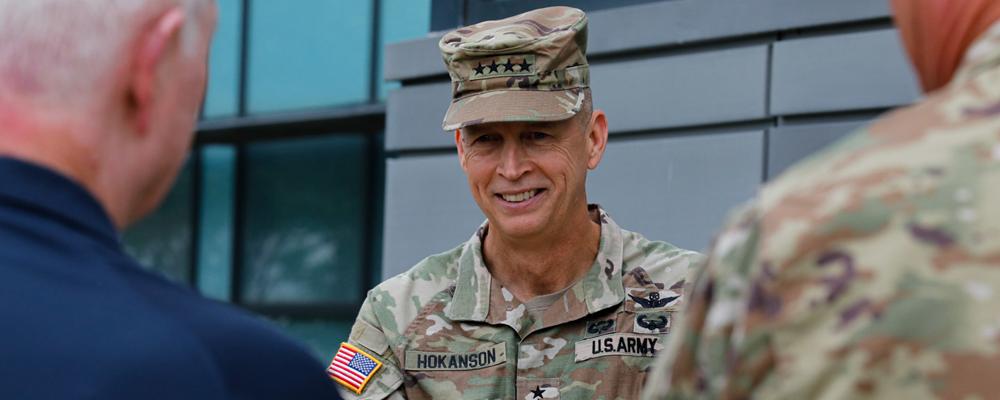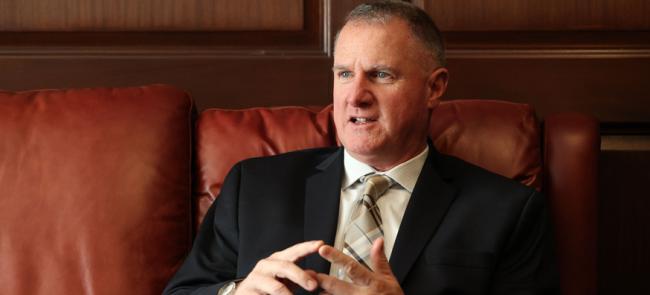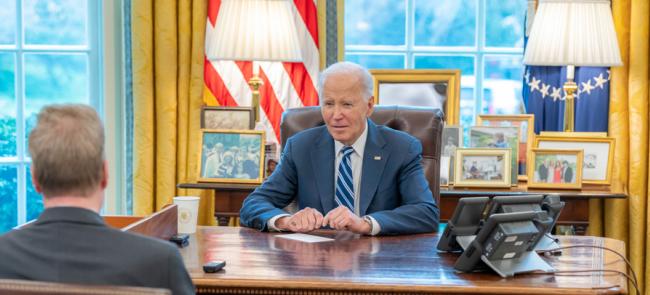
From the Chief: Power of the Pen
How often do you think about your signature?
Today, in an era of paying bills online and signing documents digitally, the answer might be “That chicken scratch? Not much at all.”
But this digitization has the unintended effect of adding tremendous significance to actual signatures.
When we physically sign our names to things, they tend to be things that matter most — love letters, marriage licenses, mortgages on the homes where we raise our families.
There’s power in a signature because it’s a promise. In the case of our State Partnership Program, signing ceremonies are a promise for the future.
I’ve been fortunate enough to participate in four of these ceremonies in my time as chief: Egypt and the Texas National Guard; Austria and the Vermont National Guard; Norway and the Minnesota National Guard; and Oman and the Arizona National Guard.
With plans to grow SPP over the next decade well underway, I hope to attend even more of these significant events in the future.
Each signing ceremony has been unique in the ways that countries and cultures are different — different flags, different venues and different languages. But all have been marked by both solemnity and celebration.
Sitting side by side with the adjutants general, the ministers and chiefs of defense of our partner nations, ambassadors and other distinguished leaders, we sign the partnership declaration. Cameras flash as we exchange congratulations. It’s an important day for our partner nations and our National Guard, as every stroke of a pen strengthens our collective defense.
When we talk to the media after the signing ceremony, it’s clear they’re interested in SPP — its origins, its purpose and the ties between the state and partner nation that help establish commonality. These engagements help raise SPP’s profile internationally, so more people not only know what SPP is, but better understand the value the United States sees in partnering with that particular country.
That value is limitless: better readiness for our Guardsmen and our partners, better interoperability between our forces and a better understanding of the global environment in which we operate.
When we physically sign our names to things, they tend to be things that matter most.
I see the relationships that develop between our adjutants general and the ministers and chiefs of defense. These are genuine friendships with shared history, inside jokes, common references and mutual understanding.
These relationships across nations can be found at every rank, as our Guardsmen befriend and keep in touch with their partner nation’s service members. As their careers progress, those relationships endure. When it is time to train, time to respond or time to fight, our Guardsmen and our partners can build on existing trust and respect. When called, we can stand shoulder to shoulder with friends, not strangers.
In the current strategic environment, these relationships matter more than ever. Russia’s violent, unprovoked invasion of Ukraine has increased interest in SPP and other security cooperation agreements as the world’s nations seek to defend their sovereignty and stand united against brutality.
Meanwhile, SPP helps the United States remain the partner of choice at a time when China, our pacing challenge, uses predatory diplomatic and economic tactics to fulfill its imperial ambitions.
I don’t use the term partner of choice lightly. The fact is, these partnerships can’t be forced; they are the product of trust, respect and free will.
Every interaction with our partners either strengthens or weakens that bond. Every moment we share, from a signing ceremony to a training exercise, is an opportunity to improve our relationship with our partner nations and our standing as the partner of choice around the world.
Our National Defense Strategy is clear: Mutually beneficial alliances and partnerships are an enduring strength. They are critical for achieving our shared objectives. They are a force for peace, stability and security. They reinforce the rules-based international order and deter aggression by those who seek to overturn it. No one nation can do this alone. Our security depends on each other.
SPP signing ceremonies inaugurate a partnership. With a signature, we make a promise to our partner nations. We promise to cooperate, to learn from each other, to make each other better and to work as a team. We promise to be Always Ready, Always There — together.
The author is chief of the National Guard Bureau.



